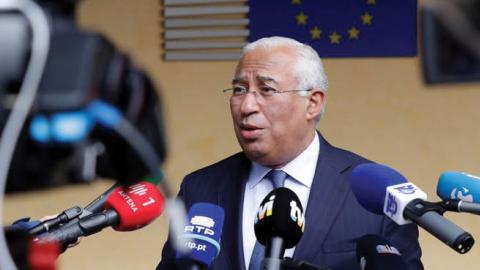As European diplomats haggled over the threatened Polish and Hungarian vetoes that could block the Covid bailout plan so laboriously negotiated earlier in the year, Portugal’s Socialist Prime Minister António Costa took the occasion to propose a plan to shrink and simplify the European Union.
To make Europe work, he says, the countries that genuinely care about European values need to slough off the unbelievers. The remnant would be a smaller but purer group of countries ready to build the kind of “ever deeper union” of which EU founders like Jean Monnet and Robert Schumann dreamed. As Mr. Costa puts it, “Basically, it is whether the European Union is a union of values, or whether, on the contrary, it is primarily an economic instrument to generate economic value.”
It is a noble-sounding idea, but it is not exactly correct. Under Mr. Costa’s proposed strategy, the EU might or might not become a “union of values.” But it would become a much more efficient economic instrument to transfer economic resources to Mr. Costa’s constituents.
Mr. Costa, whose thinking about Europe is said to be close to that of French President Emmanuel Macron, has two groups of countries in mind when he speaks of the backsliders who fail to embrace European values. One group, the “Illiberal East,” as we can call them, are countries like Poland and Hungary that dissent from conventional EU orthodoxy on topics ranging from migration to gay rights—and whose governments have been widely criticized in Europe and beyond for undermining democracy through restrictive media laws and other stratagems.
Read the full article in The Wall Street Journal

















